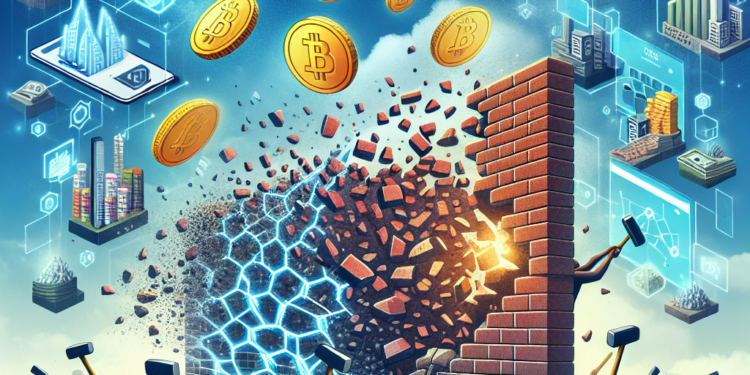In ancient times, the heart of every city was the marketplace. It was a bustling, vibrant place where goods, services, and currencies constantly changed hands. This energy, this dynamism is what drove economies forward. Today, we’ve moved that marketplace online, but there’s one major difference – middlemen. Middlemen, like banks and brokers, slow things down and put a strain on the ingenuity and freedom of the market. But there’s good news on the horizon. We’re moving towards a world of Decentralized Finance (DeFi), and that promises to break down these barriers.
So, what is Decentralized Finance, exactly? Imagine a global, open alternative to every financial service you use today — savings, loans, trading, insurance and more — accessible to anyone in the world with a smartphone and internet connection. This is DeFi in essence. It’s a radical idea that can create a truly open financial system — one that sidesteps the middlemen and allows everyone, regardless of their location, to participate.
DeFi is built on the backbone of blockchain technology, which allows for transparency and decentralization like nothing else. In a nutshell, blockchain means no one person or entity has full control. Instead, thousands or even millions of people have a bit of control. The system is governed by protocols rather than by humans. This, in turn, brings about greater fairness and equality. Better yet, it can significantly reduce the friction in all kinds of transactions, from money transfers and loans to insurance and asset trading.
This exciting world is already at our doorstep. DeFi is not just a vision of the future, it’s here today, and it’s growing at an extraordinary pace. Currently, billions of dollars are locked in DeFi protocols. These include lending platforms such as MakerDAO and Compound, decentralized exchanges like Uniswap and Balancer, and yield farming platforms such as Yearn.finance. Not to mention the insurgence of NFTs (Non-Fungible Tokens), which are giving artists and creators the opportunity to sell their works directly to consumers without a middleman.
The key benefit of DeFi is crystal clear – inclusion. Traditionally, financial systems have been largely exclusive. You needed to meet certain criteria to gain entry. But in the DeFi world, all you need is a basic smartphone with internet connection. No need for credit scores or verified identification. If you can connect to the internet, you can participate. That’s real financial inclusion.
In this emerging landscape, currencies can move fluidly across borders, and access to financial services becomes a basic right, rather than a privilege bestowed by a few. With DeFi, fees can be reduced, outcomes can be predictable and fair, and the economic energy can flow smoothly and without interruption.
But we need to acknowledge the challenges too. Being a relatively new technology, it still requires maturation and the establishment of trust. The protocol is as safe as its smart contract code; if there are bugs, they could be exploited. Regulatory concerns are another key hurdle. But despite these concerns, DeFi has shown consistent growth and improvement. Regulations are catching up, security is getting better, and the user interface and experience continue to improve.
To conclude, while we’re still at the beginning of this journey, it’s clear that DeFi holds massive potential. Breaking down financial barriers and bringing about inclusion on a global scale is not a small claim, but DeFi shows promise in fulfilling it. The core philosophy of DeFi — open, transparent, and inclusive — could shape the financial landscape of the future.
For more trending news articles like this, check out DeFi Daily News.
Frequently Asked Questions:
What is Decentralized Finance?
Decentralized Finance (DeFi) is a blockchain-based form of finance that does not rely on central financial intermediaries such as brokerages, exchanges, or banks.
Wil DeFi replace the current financial system?
While it’s unlikely to completely replace the current system, it does present an alternative that provides greater inclusion and accessibility.
Is DeFi safe to use?
Like any financial system, it’s not without risks. However, security is continually improving, and it’s important to always do your research before engaging in any financial transactions.



















